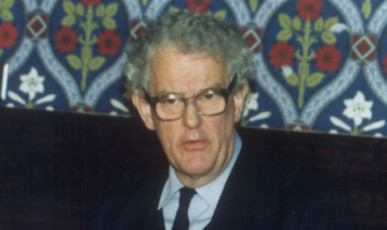For nearly 40 years it has been a question without a definitive answer.
But now, after Scots rejected outright independence at the polls on Thursday, the promise of additional powers being devolved to Holyrood means the Coalition Government will have to find a way to solve the West Lothian Question.
The term, coined by the then West Lothian Labour MP Tam Dalyell in 1977, asks why Scottish MPs are allowed to vote on matters that effect England when English MPs have no power over powers that have been devolved to Scotland, such as health or education.
It was a tricky paradox but one that remained theoretical until the creation of the Scottish Parliament in 1999.
Since then, the West Lothian Question has not gone away. SNP MPs take a stance on principle not to vote on English matters but Labour, Conservative and Liberal Democrat MPs all do.
This is less to do with a desire in English affairs that a consequence of the Whip system, where parties try to ensure they get the votes they need.
Needless to say, this is not always popular and it was only the votes of Scottish MPs that passed legislation introducing tuition fees in England and to create foundation hospitals two unpopular policies which were not introduced north of the border.
Now with greater powers promised to Scotland, it means there will be even more issues affecting Scots than English MPs have no say over, while their Scottish, Welsh and Northern Irish counterparts continue to vote on English legislation.
This is why Prime Minister David Cameron has said the West Lothian Question now requires “a decisive answer”.
Several options have been put forward to redress the democratic imbalance. The first is to create a new English parliament akin to Holyrood, where English representatives would have their say on issues devolved to the other constituent parts of the UK.
Power could be devolved even further to regional assemblies which would, theoretically, give different parts of England greater autonomy.
A rather simpler solution is to ban Scottish, Welsh and Northern Irish MPs from voting on issues that do not effect their constituents at all. Some MPs, such as John Redwood, have even proposed having days where only English MPs sit in the House of Commons.
